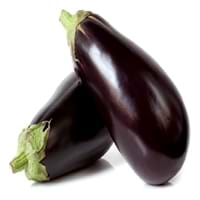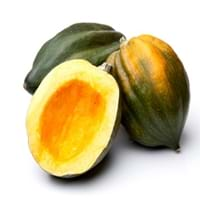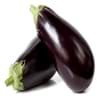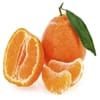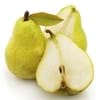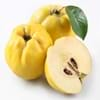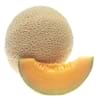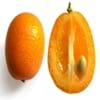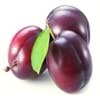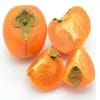Health Benefits
Cancer prevention, Heart care, Reduces blood circulation problems
Anti-inflammatory properties, Arthritis treatment, Regulates Blood Sugar
General Benefits
Digestive aid, Fights against infections, Flu treatment, Healing of wounds, Helps in weight loss, Treatment of common cold
Boosts immune system, Controls blood sugar levels, Digestive aid
Skin Benefits
Anti-aging benefits, Brightens and lightens complexion, Skin cleansing, Skin rejuvenation
Nourishes skin, Protects skin from oxidative stress
Hair Benefits
Prevents hair loss, Promotes longer and healthier hair, Protects hair, Rejuvenates scalp
Prevents hair loss, Promotes longer and healthier hair, Regulates hair growth
Allergy Symptoms
Abdominal pains, Anaphylaxis, Diarrhea, Dizziness, Hives, Itching in tongue and other parts of mouth, Tingling sensation in mouth, Vomiting
Asthma, Red rash, Swelling of mouth, tongue or lips
Side Effects
Allergic reaction, Irritation, Nausea, Skin rash, Swelling
Diarrhoea, Vomiting
Best Time to Eat
Along with meal, Don't consume at night and before bed
Along with meal, As a snack in the late afternoon, Don't eat after meal, Eat the fresh ones, avoid mixing with any other foods, don't eat after meal.
Vitamin A (Retinol)
Not Available
Vitamin B5 (Pantothenic Acid)
Vitamin C (Ascorbic Acid)
Vitamin E (Tocopherole)
Not Available
Vitamin K (Phyllochinone)
Not Available
Lutein+Zeaxanthin
Not Available
Phytosterol
Not Available
Calories in Fresh Fruit with Peel
Calories in Fresh Fruit without Peel
Not Available
Not Available
Calories in Frozen Form
Not Available
Calories in Dried Form
Not Available
Calories in Canned Form
Not Available
Calories in Jam
Not Available
Calories in Pie
Not Available
Type
Fruit vegetable, Tropical
Berry
Season
Spring, Summer
Winter
Varieties
Black Magic, Black Beauty, Black Bell, Sicilian, Italian, Indian (Baby), Japanese, Chinese and White
Bush Table Queen, Heirloom Table Queen, Festival Hybrid, Early Acorn Hybrid, Table Ace, Ebony and Cream of the Crop
Color
Black, Green, Pink, Purple, Purplish black
Dark green, Green-yellow, Orange green
Inside Color
White
Yellow
Taste
Bitter, Slightly sweet, Spongy
Sweetish
Origin
India
Central America, North America, Unknown
Soil Type
Sandy loam
Well-drained
Climatic Conditions
Warm to hot climate
Cold, Sunny
Facts about
- In Italy, it's a belief that diet rich in eggplant leads to madness. Hence, they call it a 'crazy apple'.
- Eggplant contains nicotine & can help quit smoking.
- Juice made from its leaves and roots is medicinal.
- It was named as Acorn Squash for its resemblance to a large ribbed acorn.
- It is said that squash was being grown in Mexico as long as 10,000 years ago.
- It was the first food cultivated by native American Indians.
Other Countries
Egypt, India, Indonesia, Iran, Iraq, Italy, Japan, Spain, Turkey
Egypt, India, Iran, Italy, Mexico, Russia, Turkey, Ukraine, United States of America
Top Importer
United States of America
Costa Rica
Top Exporter
China
United States of America
Botanical Name
Solanum melongena
Cucurbita Pepo
Synonym
Solanum ovigerum or Solanum trongum
Winter Squash
Subkingdom
Tracheobionta
Tracheobionta
Division
Magnoliophyta
Magnoliophyta
Class
Magnoliopsida
Magnoliopsida
Subclass
Asteridae
Dillenhidae
Order
Solanales
Cucurbitales
Family
Solanaceae
Cucurbitaceae
Species
S. melongena
Pepo
Generic Group
Not Available
Not Available
Difference Between Eggplant and Acorn squash
We might think that Eggplant and Acorn squash are similar with respect to nutritional value and health benefits. But the nutrient content of both fruits is different. Eggplant and Acorn squash Facts such as their taste, shape, color, and size are also distinct. The difference between Eggplant and Acorn squash is explained here.
The amount of calories in 100 gm of fresh Eggplant and Acorn squash with peel is 25.00 kcal and 40.00 kcal and the amount of calories without peel is Not Available and Not Available respectively. Thus, Eggplant and Acorn squash belong to Low Calorie Fruits and Low Calorie Fruits category.These fruits might or might not differ with respect to their scientific classification. The order of Eggplant and Acorn squash is Solanales and Cucurbitales respectively. Eggplant belongs to Solanaceae family and Acorn squash belongs to Cucurbitaceae family. Eggplant belongs to Solanum genus of S. melongena species and Acorn squash belongs to Cucurbita genus of Pepo species. Beings plants, both fruits belong to Plantae Kingdom.
